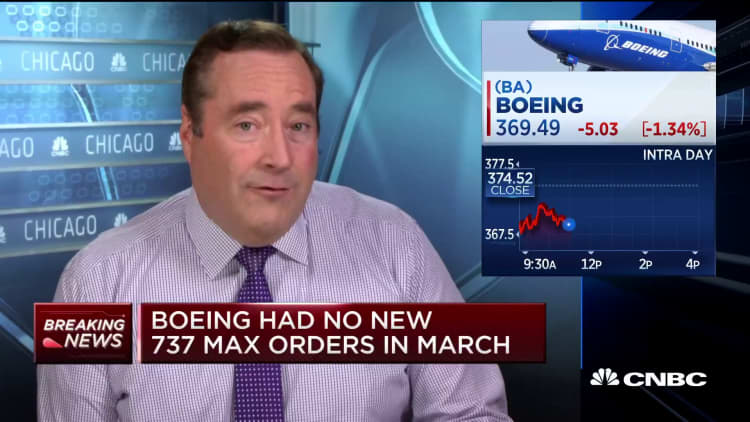Short seller Carson Block believes that recent crashes of Boeing's 737 Max planes show that the company is more concerned with short-term profit than anything else.
Founded by Block, Muddy Waters Research tweeted from its account early Tuesday morning that Boeing "has turned to blame the victim in the 2nd crash. Anything 2 protect the company."
"But let's be clear: But for MCAS malfunction, plane would have landed," Muddy Waters added. "That malfunction is almost certainly the result of putting SHORT-TERM profits above all else."
A spokesman for Muddy Waters confirmed to CNBC that the research firm does not have a short position in Boeing, but wanted to weigh in on recent developments. Aerospace manufacturer Boeing did not immediately respond to CNBC's request for comment.
Boeing shares fell 1 percent Tuesday. On Friday, the company said it will cut production of the 737 Max.
Muddy Waters' comments come a week after Ethiopian investigators released a 33-page preliminary accident report, which some industry officials and air safety experts say raises questions about the Boeing 737 Max's Maneuvering Characteristics Augmentation System (MCAS), designed to prevent stalls.
Boeing Chief Executive Dennis Muilenburg last week said that "it's our responsibility to eliminate this risk," adding that "we own it and we know how to do it."
But since the March 10 Ethiopian crash and October's fatal nosedive of a Boeing 737 Max aircraft in Indonesia, investors and regulators alike have also scrutinized pilot and crew response for any abnormal actions.
That's included the decision by the captain of the Ethiopian Airlines flight to leave the plane's engine's at full take-off power, a reportedly unusual step for a regular flight, according to four experts and five current and former pilots interviewed by Reuters.
For their part, Ethiopian aviation officials as well as members of Ethiopian Airlines contend that both the plane's pilot and co-pilot followed Boeing's protocols for dealing with an error in the plane's MCAS stall-prevention system.
Boeing is working on updates to the plane's software in an effort to avert future misfires of the MCAS system, which have prompted regulators around the world to ground the 737 Max until the issues are corrected. The company's stock is up 4.2% since the Oct. 29 Indonesian crash, underperforming the broader market.



